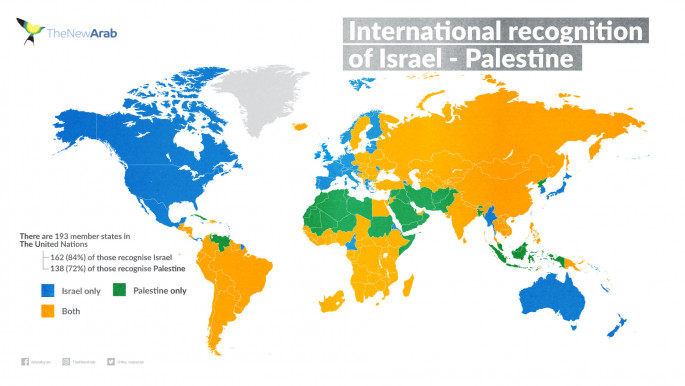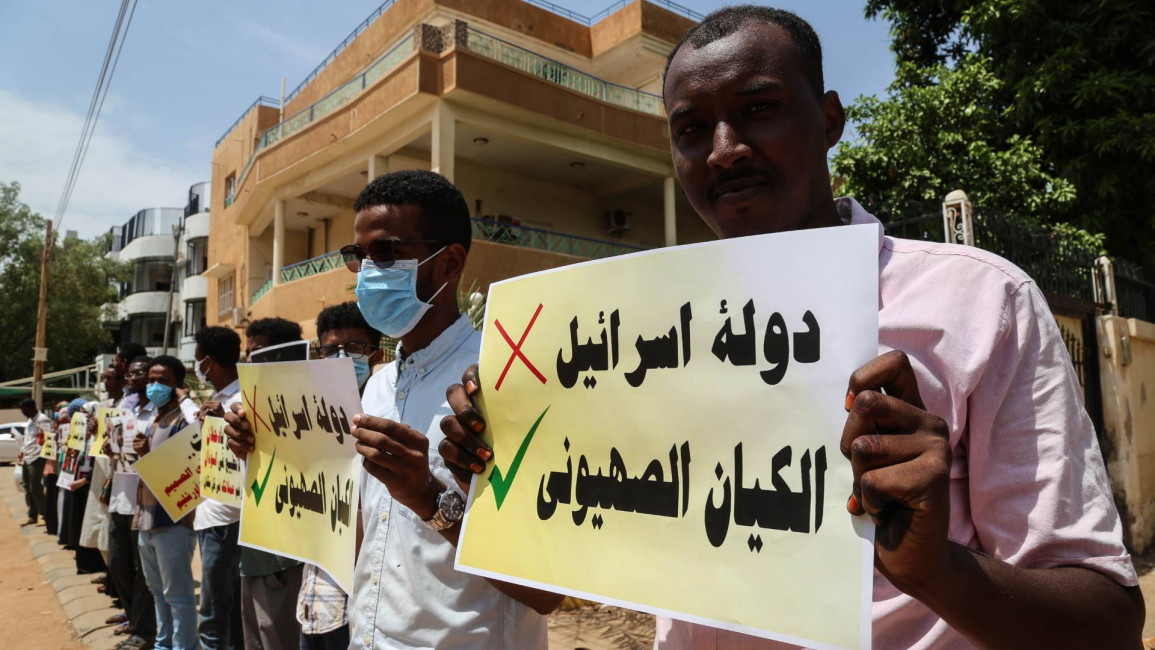Leading Sudan religious body issues fatwa against normalisation with Israel
The Islamic Fiqh Council issued a fatwa, or religious edict, against any normalisation with Israel on Wednesday.
The body, which is considered the leading authority for issuing fatwas in Sudan, said that normalisation of any kind would constitute supporting oppression and aiding sin and was thus strictly outlawed in Islam.
The Islamic Fiqh Council is a governmental body that includes representatives appointed by the prime minister.
The council's statement contrasts with claims made by Mohammad Hamdan Daglo, chief of the country's paramilitary forces and a leading figure in the transitional sovereign council.
Daglo, widely known by his moniker Hemedti, had said the transitional government had consulted a number of sheikhs who had given them the green light for normalisation.
Forging ties of any sort with Israel is highly controversial in much of the Arab and Islamic worlds.
A meeting between sovereign council leader Abd al-Fattah al-Burhan and Israel's Prime Minister Benjamin Netanyahu earlier this year drew protests in the capital.
|
|
Netanyahu declared that Sudan and Israel were on the road to normalisation following the secretive meeting in Uganda, a claim that was swiftly refuted by Khartoum.
The United States is currently lobbying Sudan to become the latest Arab nation to normalise ties with Israel, following Washington brokered deals between the Jewish state and Bahrain and the United Arab Emirates last month.
Washington has tied the issue of normalisation to that of Sudan's removal from the US State Sponsors of Terrorism list, a designation that has since the '90s exposed Khartoum to harmful sanctions and limited the country's access to international aid.
While all parties in the transitional government seek Sudan's removal from the terror sponsor list, reports indicate civilian factions within the government oppose normalisation with Israel.
Prime Minister Abdalla Hamdok has previously stated that the current transitional government does not have a mandate to establish ties with Israel, and that any decision on the issue should wait until after the country holds democratic elections scheduled for 2022.
Support for normalisation
Also on Wednesday, a group of three Sudanese factions issued a collective statement calling for normalisation with Israel in return for Khartoum's de-listing and a package of economic support from the US.
The call was issued by the Umma Party - one of Sudan's largest and most influential political factions - and two rebel groups, the Eastern Front and the Sudan Liberation Movement - Second Revolution.
 |
| [Click to enlarge] |
"The American proposal is governed by the period of the upcoming presidential elections, and we should not miss this historic opportunity," said Mubarak al-Fadel, leader of the Umma Party.
"After the results of the US presidential elections are announced, we will enter into a major crisis in Sudan if we do not agree to the offer made in the UAE," he said, referring to meetings between US and Sudanese officials in the Emirates last month.
Khartoum is mired in an economic crisis sparked by years of corruption and economic mismanagement under President Omar al-Bashir, who was ousted by the military last year following months of popular protests.
The crisis has deepened since the advent of the coronavirus crisis, with the International Monetary Fund predicting Sudan will be stuck in a deep recession into 2021.
"Sudan will not be removed from the terrorism list for many years if we do not take advantage of the existing opportunity," Fadel added.
Follow us on Facebook, Twitter and Instagram to stay connected



